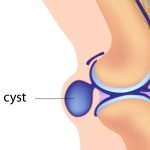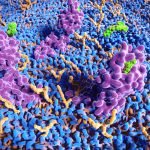A New Campaign to Help Promote Brain Health in Children
Node Smith, ND
My Brain Robbie animation campaign aims to help keep little brains healthy
My Brain Robbie, a fantastic new initiative to promote brain health among school aged children, has been launched through the Pilot Awards for Global Brain Health Leaders, an initiative of the Global Brain Health Institute (GBHI), Alzheimer’s Association and Alzheimer’s Society UK. The project includes an animated video of a little brain which helps children learn about the 8 steps to keeping brains healthy, along with free educational resources for parents and teachers.
Brain protection strategies for all ages
The My Brain Robbie campaign aims to fill an educational gap in the field of dementia prevention by generating a public health educational initiative for children aged 6 to 12 years. It also aims to increase global public awareness of the importance of brain health across the lifespan, rather than it being considered that brain protection strategies are an issue only for the elderly.
The video and materials bring together the latest scientific research in neurology and epidemiology which encourages early prevention and lifelong healthy lifestyles to mitigate the risk of developing chronic brain diseases including Alzheimer’s disease. Recent studies project that up to 30% of dementia may be preventable by targeting modifiable risk factors. The initiative was developed by researcher, doctor/physician and Atlantic Fellow for Equity in Brain Health at GBHI, Dr. Eleonore Bayen.
8 neuroprotective habits
My Brain Robbie explains in child friendly language, the simple ways to keep our brain healthy using 8 neuroprotective habits which connect with known modifiable risk factors for cognitive decline:
- 1. Learn – touches on the role of education, cognitive stimulation and learning new things, in building cognitive reserve.
- 2. Be active – describes the importance of physical activity and preventing sedentary lifestyles. Bad habits can develop as a result of spending too much time in front of electronic screens, a key issue for children, not to mention adults too!
- 3. Avoid head injuries – looks at the prevention of traumatic brain injury.
- 4. Have a healthy diet – refers to the “Mediterranean diet” and its health promoting effects
- 5. Avoid dangerous substances – educates children in age-appropriate language about the dangers of tobacco and drug intake as well as excessive alcohol use.
- 6. Sleep well – explains the importance of healthy sleep.
- 7. Take good care of your health – looks at the importance of following medical care instructions for chronic diseases that can impact brain health, for example, hypertension.
- 8. Spend time with family and friends – highlights the importance of social interaction for keeping our brains healthy.
My Brain Robbie, which was funded by GBHI and the Alzheimer’s Association, empowers children to maintain a healthy brain throughout their lives by providing them with simple public health messages. Dr Bayen hopes that, by providing information about brain health as part of early life education, this will create a shift in perceptions, beliefs, attitudes and stigma towards diseases of the brain, particularly dementia, in this generation and beyond.
Hope for a shift in perception, beliefs, and stigmas towards brain diseases
Dr Bayen said: “This pilot arrives at a perfect time in history when the fight against dementia in high, low- and middle-income countries has become a top priority with an urgent need for innovative actions and “out of the box” thinking in prevention and care. While education at school offers us an amazing opportunity to fight stigma as well as social and health inequities, it appears that ‘dementia prevention and brain health at school’ is currently not being addressed and this would surely improve public awareness worldwide.”
She continued: “We hope that by teaching these important healthy brain habits to a younger generation that this may, in turn, educate upwards through the generations by motivating their parents and grandparents to learn more about the subject of brain health and dementia prevention. It may also, in turn, help to create a more supportive and inclusive living environment for people with neurocognitive disability and to create a feeling of optimism in a field of neurology where there have been limited therapeutic successes. Children are often wonderful teachers for their peers, parents, grandparents, and society at large.”
Dr Bayen worked in collaboration with a wide variety of experts such as neuroscientists, medical and health professionals, education specialists, teachers, parents, communication and design experts, as well as other Atlantic Fellows and faculty from GBHI.
Videos are currently available in English and French
The videos are currently available in English and French with plans to translate these into many more languages. My Brain Robbie welcomes interest from educators, health groups, parenting communities and others in sharing this initiative with as many children as possible.
She was inspired to develop the initiative during her Atlantic Fellowship with GBHI based at the University of California, San Francisco and Trinity College Dublin. GBHI focuses on protecting the world’s aging populations from threats to brain health. Collectively with partners, GBHI aims to reduce the scale and impact of dementia. The Pilot Awards for Global Brain Health Leaders is an initiative launched by GBHI and partners, the Alzheimer’s Association and the Alzheimer’s Society UK. The awards aim to support emerging leaders in brain health protection by funding small-scale innovative activities to delay, prevent, or mitigate the impact of dementia.
Dr Bayen’s work
“Dr Bayen’s work is a wonderful example of GBHI’s approach to attaining a global impact on dementia prevention. It engages inter-professional contributions to development on a global scale. It also recognizes that brain protection is a life-long dialogue. Her innovative strategy of teaching children who will then engage in dialogue within households to ‘educate-up’ to parents and grandparents while reducing the stigma of dementia is timely.” said Victor Valcour, Executive Director of GBHI and the Atlantic Fellows for Equity in Brain Health program.
Dr Bayen said: “As a researcher and also a physician, I feel that my duty is not only to advance pure science but also to communicate it with others in creative ways. I hope that the My Brain Robbie campaign inspires children to feel responsible for their own brain health and to become aware of others’ brain health too.”
To watch and download the videos and materials please visit www.mybrainrobbie.org
 Node Smith, ND, is a naturopathic physician in Portland, OR and associate editor for NDNR. He has been instrumental in maintaining a firm connection to the philosophy and heritage of naturopathic medicine among the next generation of docs. He helped found the first multi-generational experiential retreat, which brings elders, alumni, and students together for a weekend camp-out where naturopathic medicine and medical philosophy are experienced in nature. Four years ago he helped found the non-profit, Association for Naturopathic ReVitalization (ANR), for which he serves as the board chairman. ANR has a mission to inspire health practitioners to embody the naturopathic principles through experiential education. Node also has a firm belief that the next era of naturopathic medicine will see a resurgence of in-patient facilities which use fasting, earthing, hydrotherapy and homeopathy to bring people back from chronic diseases of modern living; he is involved in numerous conversations and projects to bring about this vision.
Node Smith, ND, is a naturopathic physician in Portland, OR and associate editor for NDNR. He has been instrumental in maintaining a firm connection to the philosophy and heritage of naturopathic medicine among the next generation of docs. He helped found the first multi-generational experiential retreat, which brings elders, alumni, and students together for a weekend camp-out where naturopathic medicine and medical philosophy are experienced in nature. Four years ago he helped found the non-profit, Association for Naturopathic ReVitalization (ANR), for which he serves as the board chairman. ANR has a mission to inspire health practitioners to embody the naturopathic principles through experiential education. Node also has a firm belief that the next era of naturopathic medicine will see a resurgence of in-patient facilities which use fasting, earthing, hydrotherapy and homeopathy to bring people back from chronic diseases of modern living; he is involved in numerous conversations and projects to bring about this vision.









